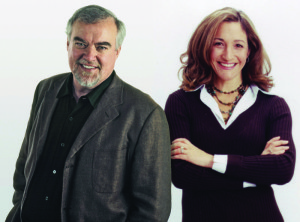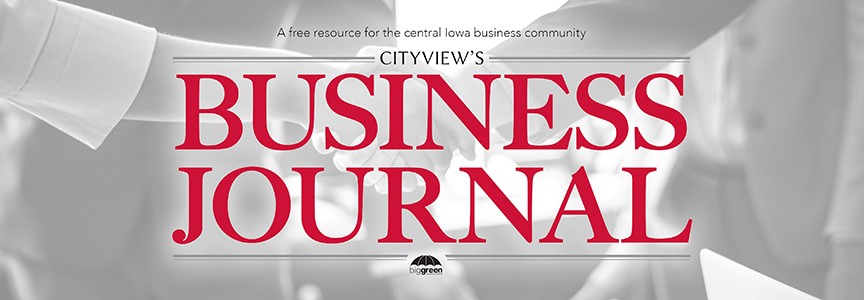Dear J.T. & Dale: I was recently contacted about a job opportunity and invited to an interview via Skype. I found the experience very odd. The recruiter was firing questions, often asking the next question before I had a chance to answer the last one. They made me a job offer, so it turned out OK, but now I’m wondering, is this the new normal? — Brooke
J.T.: Yes, you’ll see a lot more virtual interviewing. You can appreciate the advantages for the interviewer, and for you, too.
DALE: It might be the “new normal,” but there’s nothing normal about it. The job interview you experienced was a faux conversation between two artificial personalities. You were being Interview Brooke, which is, let’s face it, not the real you, and the person you were talking to was playing the role of The Interviewer. Then, here’s my guess as to why it was such an awkward conversation. Many companies now require use of standard sets of questions. The recruiter probably regarded many of them as irrelevant, but nevertheless had to ask them, so he wasn’t listening to your answers. Add in that this was online, rather than in person, and what you have is an awful way to make hiring decisions.
J.T.: Agreed. Skype would more commonly be used for preliminary interviews, or there might be a series of such interviews. So I would be cautious about accepting this offer; research the company and the people. As for future online interviews, I would suggest that you practice. If you search on the Internet, you will find lots of articles offering best practices on how to make a great first impression in an online interview.
DALE: Yes, you no longer simply rehearse having great answers and asking great questions, but you have to consider lighting, backgrounds and the camera angle. And you might want to buy a microphone so they can hear you better than other candidates. Remember, the point of any interview is NOT whether you’re qualified — that was determined from your resume or referral — it’s whether you’re the proverbial “fit.” And that comes down to this: Can they “see” you in the job? Yes, the visuals do matter.
Dear J.T. & Dale: I work for a company with lots of remote employees. Before I got hired, I had a phone interview with six people. I was well-prepared, but I did awful. I couldn’t connect with anyone, and there were uncomfortable silences after hypothetical “if/then” questions. Now I am applying for another job and am facing another phone interview with several people on the call. How can I forget the last time and not choke again? — Daryl
DALE: Here’s the plan: 1. Be hyper-prepared. 2. Bathe first. Let’s start with the second point: Don’t let yourself think negative thoughts about this interview; instead, bathe your mind in great memories — your best job, best colleague, best boss. Make a list. You want to go into the interview smiling. Then, as for being hyper-prepared, get the names of the people on the call and learn what you can about them. Ideally, their pictures will be on the company website or elsewhere online. Print out those photos and add a few bio notes. Then, as you answer questions, talk to those photos and try to use names when you can.
J.T.: And never forget the outcome of the last phone interview: You got the job! So don’t think of this as an interrogation; rather, this is your chance to meet some new colleagues. Focus on them and how you could help the team, not on yourself.
DALE: What happens when you meet new colleagues? You ask questions. Study the company website and read about the company, working as hard on the questions you’ll ask as on the answers you’ll give. As for awkward moments, if they throw you a hypothetical if/then question for which you don’t have a solution, just say: “I’d hate to guess what I’d do. I’d want to think about it and get opinions from colleagues.” Everyone wants to work with that kind of team player.
Dear J.T. & Dale: Six months ago I took what I thought would be my dream job with a company I adored. Sadly, once inside the organization, I learned that it was highly dysfunctional. The job became so stressful, with arguing and backstabbing, that I got physically sick. After a discussion with my wife, I decided to resign. I immediately felt better, but now that I’m going on interviews, I’m struggling to explain what happened. Suggestions? — Rory
J.T.: When on interviews, it’s difficult to explain away what happened to you without throwing your former employer under the bus. And when you throw an employer under the bus, it’s very hard for the next employer to see you as a good hire.
DALE: Here’s the problem: Recruiters are trained to think the worst. Why? Because their first priority is to avoid a bad hire. So, when you quit a company with a great reputation, you look like a malcontent; or maybe they think you must have been shoved out.
J.T.: To overcome this, you should stick to the facts and be as objective as possible when explaining what transpired. Then take ownership of the situation. By that I mean you should explain what you’ve learned from the experience and how you’ve grown. Tell them specifically, if you can, what you would have done differently. Then tell them how important it is that you find a new employer and put this behind you so you can give the new employer 200 percent. By being honest without getting emotional, and by taking ownership, you will show your character without having to speak poorly of the former employer.
DALE: All good advice, except I would quibble with the idea of getting specific. Instead, I would blame politics, saying something like: “I thought it would be a dream job, but it turned out that it was constant office politics. Plenty of people had knives sticking out of their backs. I tried to get along with everyone, but it was impossible. So I left to devote myself to finding a real team, a place where we work together and help one another succeed.” Bang. Who doesn’t want to hire that guy?
Jeanine “J.T.” Tanner O’Donnell is a professional development specialist and the founder of the consulting firm jtodonnell. Dale Dauten resolves employment and other business disputes as a mediator with AgreementHouse.com. com. Visit them at jtanddale.com, where you can send questions via email, or write to them in care of King Features Syndicate, 300 W. 57th St., 15th Floor, New York, New York 10019.
(c) 2016 by King Features Syndicate, Inc.

